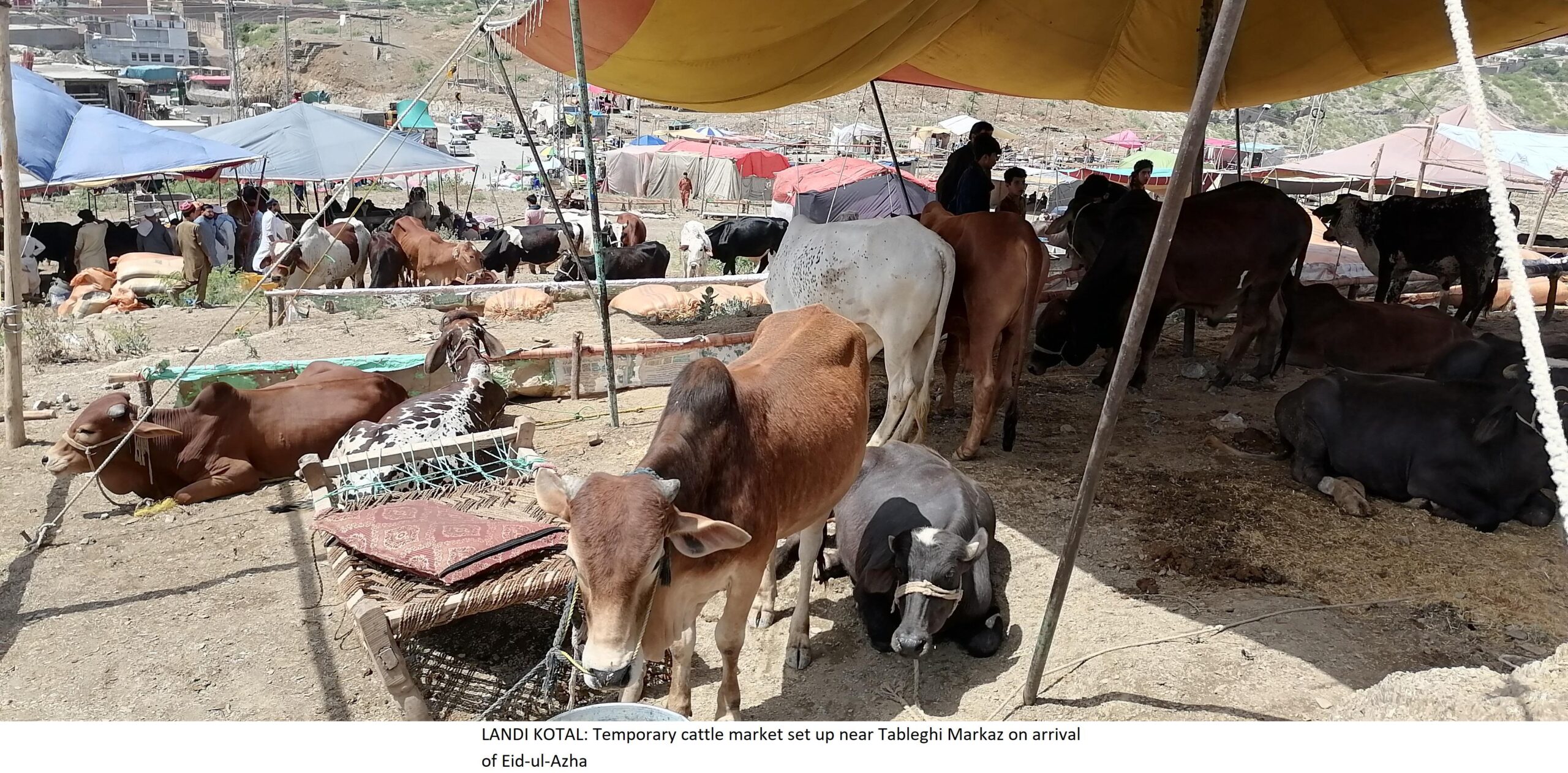Ahmad Nabi
KHYBER: The tribesmen of Landi Kotal have complained against what they said was an unmatched hike in prices of sacrificial animals, saying the practice would deprive many of the believers to perform the Sunnah of Ibrahim (Peace Be Upon Him).
Although the government has imposed a ban on export of livestock to Afghanistan to keep the prices of sacrificial animals under control but to in avail.
According to a survey conducted by this scribe in the main cattle market near Tableghi Markaz,Landi Kotal, a total of almost 50000 are slaughtered in the town on every Eidul Azha.
Out of the total number 30000 are goats, sheep etc. while the rest 20000 are cow, ox buffalo etc.locals said.
Tribesmen complained that people involved in the selling of the sacrificial animals demanded sky-rocketing prices of the sacrificial animals that were out of reach of common man and as compared to last year 60% to 75% rise had been noticed in the cattle prices.
In Landi Kotal tribesmen prefer to buy sheep and this year the prices of sheep started from Rs.50000 to Rs.90000.
Similarly price of cow, ox and buffalo witnessed from Rs. 150000 to Rs.500000.
Sherbaz Khan, a seller in the cattle market, said that prices of the big sacrificial animals rose from Rs.20000 to Rs.40000 per head because of the rise in transportation and other expenses.
One big animal ate as much as Rs.300 of green fodder per day that added to the price of the animals, he added.
The sellers said that due to high prices people were least enthusiastic to buy sacrificial animals although the Eid was around the corner.
Gula Jan, a local buyer, said that the hike in price of cattle would leave hundreds of white collar citizens without performing the religious rites.
The prices of the animals increased by thousands of rupees but their income was the same, he added.
He maintained that if the import of sheep and lamb from Afghanistan through Torkham crossing was permitted, many tribesmen would be able to buy sacrificial animals without disturbing their monthly budgets.
Many buyers believed that prices of the cattle will come down as the festival approaches, saying the sellers will sell all of their cattle before the Eid.

